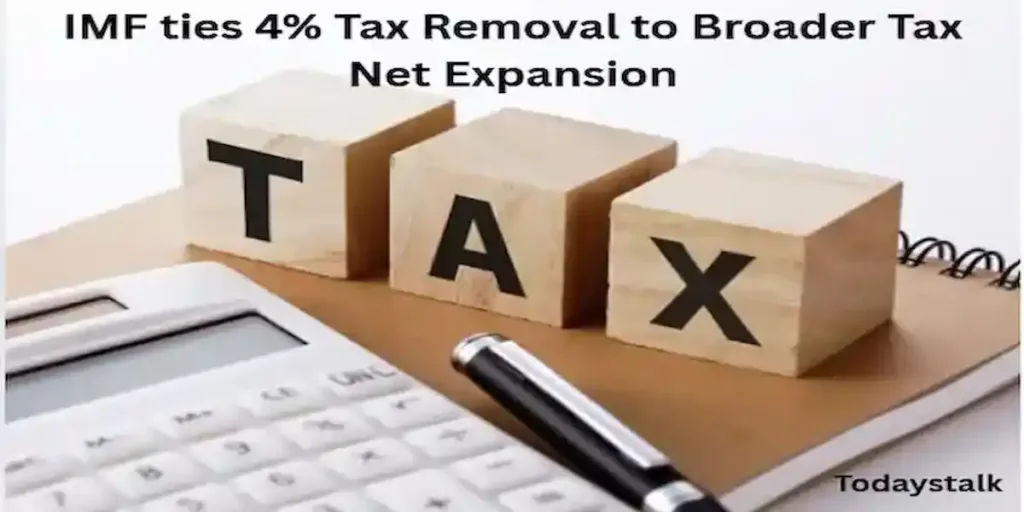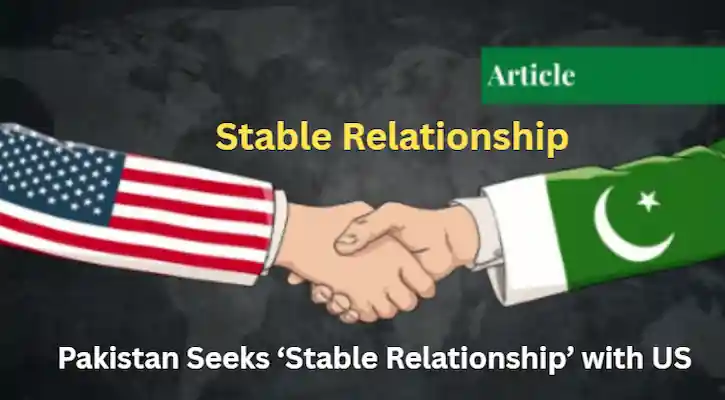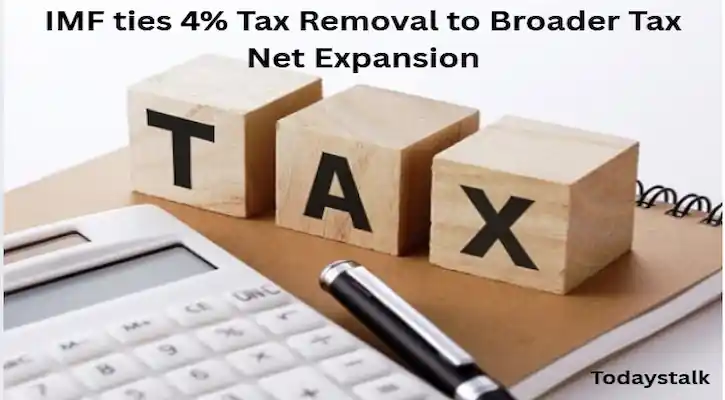As IMF ties 4% tax removal to wider net, it signals that while immediate tax relief is possible
In a crucial policy development, IMF ties 4% tax removal to wider net expansion in Pakistan, signalling that tax relief measures will only proceed if the country ensures a broader tax base to support sustainable revenue generation.
The International Monetary Fund’s stance highlights its consistent push for structural reforms in Pakistan’s economy, focusing on long-term fiscal stability rather than short-term relief.
What Is the 4% Tax Under Review?
The 4% tax in question relates to the advance income tax collected on various transactions, including certain imports and services, which businesses and individuals often find burdensome.
This tax was initially imposed to enhance revenue collection in the face of limited documentation and weak compliance across sectors.
However, businesses have repeatedly raised concerns about its negative impact on costs and cash flows, arguing that it discourages growth and investment, particularly in sectors already struggling with high inflation and operational challenges.
IMF’s Position: Relief Tied to Broader Tax Net
During ongoing discussions with Pakistan’s economic team, the IMF emphasized that removing the 4% tax would only be viable if the government expands the tax base significantly.
According to officials, IMF ties 4% tax removal to wider net expansion to ensure that revenue loss from the removal can be compensated by bringing untaxed segments into the formal tax system.
Currently, Pakistan’s tax-to-GDP ratio remains among the lowest in the region, with a significant portion of the economy undocumented or underreported.
The IMF insists that to unlock growth while maintaining fiscal discipline, Pakistan must prioritize documentation and enforcement, reducing its reliance on indirect taxes and advance withholding measures.

Why Expanding the Tax Net Matters
Expanding the tax net is crucial for Pakistan’s economic stability.
A narrow tax base forces the government to rely heavily on indirect taxation, disproportionately affecting lower-income segments and small businesses.
By broadening the tax base, Pakistan can ensure fairer tax collection, distribute the tax burden more equitably, and create fiscal space for development spending.
Moreover, expanding the tax net aligns with the IMF’s broader reform agenda, which aims to strengthen Pakistan’s institutions, improve revenue collection, and enhance transparency across economic sectors.
What Does This Mean for Businesses?
For the business community, the linkage between IMF ties 4% tax removal to wider net expansion means that immediate relief will depend on the government’s ability to deliver structural reforms.
While businesses seek a reduction in advance taxes to ease operational burdens, the IMF’s conditions highlight the need for a more sustainable revenue strategy.Businesses may see a gradual phase-out of the 4% tax if the Federal Board of Revenue (FBR) demonstrates credible progress in documenting the economy and bringing new taxpayers into the net.
This change could eventually improve cash flows and encourage investment while ensuring the government’s revenue needs are met.
Government’s Next Steps
Pakistan’s government now faces the dual challenge of providing relief to businesses while adhering to IMF conditions to maintain financial support and avoid fiscal slippages.
Recent budget discussions have focused on measures to improve documentation, such as stricter penalties for non-filers, incentives for taxpayers, and technological upgrades within the FBR.
Furthermore, officials have hinted at upcoming initiatives to identify and document high-net-worth individuals and sectors that remain outside the formal system, which will be crucial if Pakistan seeks to secure IMF’s agreement for the 4% tax removal.
Broader Implications for Economic Stability
The IMF’s approach underscores the need for Pakistan to address its structural revenue weaknesses to stabilize the economy.
By tying IMF ties 4% tax removal to wider net expansion, the Fund emphasizes that sustainable growth cannot occur without a fair and efficient tax system.
Expanding the tax net is not just a technical reform; it is central to Pakistan’s efforts to reduce dependency on loans, improve social spending, and create a more equitable economic environment.
This transition, although challenging, is critical for reducing fiscal deficits and strengthening investor confidence in the country’s economic policies.
Conclusion: A Conditional Path to Relief
The IMF’s message is clear: Pakistan can only achieve meaningful tax relief and economic stability if it takes concrete steps to broaden its tax net.
As IMF ties 4% tax removal to wider net, it signals that while immediate tax relief is possible, it must align with structural reforms ensuring long-term sustainability.
For businesses and policymakers alike, the focus now must remain on documenting the economy, enhancing compliance, and implementing reforms that pave the way for sustainable growth while reducing the pressure of high taxes on compliant sectors.






 Bitcoin
Bitcoin  Ethereum
Ethereum  XRP
XRP  Tether
Tether  Solana
Solana  TRON
TRON  Dogecoin
Dogecoin  Litecoin
Litecoin